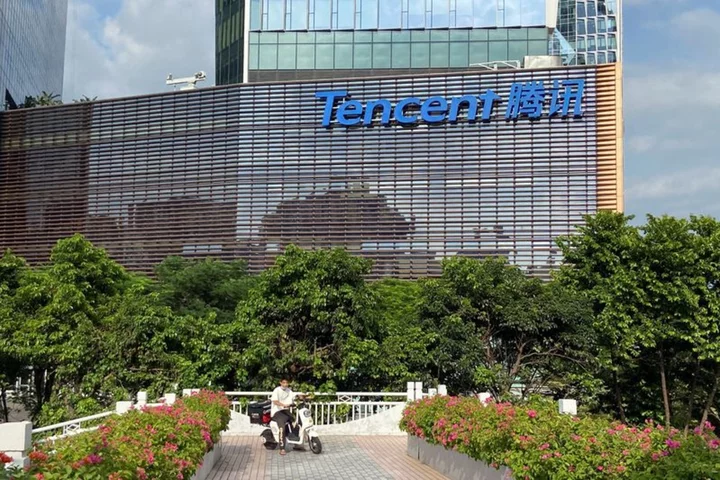By Josh Ye
HONG KONG (Reuters) -Revenue growth for Chinese social media and gaming giant Tencent Holdings was smaller than expected in the second quarter, as a sputtering economy weighed on its recovery from last year's record downturn.
Tencent's core gaming business experienced weaker-than-expected growth in the quarter through June. Domestic gaming revenue was little changed at 31.8 billion yuan, while international gaming revenue rose 12% to 12.7 billion yuan, excluding the impact of currency movements.
In a call with analysts, James Mitchell, the company's chief strategy officer, attributed slow growth in video games to a decision "to temporarily release less commercially impactful content" in the second quarter.
However, industry analysts said world's largest video game company and operator of the WeChat messaging platform now faces heavy competition from rivals in the industry.
Shawn Yang, an analyst at Blue Lotus Capital Advisors, said while Tencent's old hit games have delivered sub-par revenues due to lack of content, its new games face fierce competition from rival game companies such as NetEase Inc and miHoYo.
Revenue grew 11% to 149.20 billion yuan ($20.45 billion) in the three months ended June 30, below the 151.73 billion yuan average estimate of 21 analysts compiled by Refinitiv.
Revenue growth was little changed from a 10.7% rise in the first quarter. Tencent posted a 1% revenue drop in the same period last year on its first-ever sales decline amid Beijing's regulatory crackdown on the tech sector.
Regulatory concern has eased this year for China's tech giants, including Tencent, with Chinese authorities keen to boost private sector confidence. But the world's second-largest economy has failed to surge after it lifted COVID-19 restrictions late last year.
Net profit rose 41% to 26.17 billion yuan as compared to the same period last year. But it fell under the 33.41 billion yuan average analyst estimate.
Revenue from online ads stood out as one of the bright spots. It grew 34% to 25 billion yuan as its TikTok-like short video service Video Accounts experienced increased demand.
Revenue from fintech and business services grew 15% to 48.6 billion yuan which the company said reflected expansion in both offline and online payment activities.
On Beijng's regulatory stance, Tencent said the government had become supportive of platform companies like Tencent.
Asked about the potential impact of Beijing's newly proposed rules to ban children from using smartphones for more than two hours a day, Martin Lau, Tencent's president, said on the call he expects "no material impact" to Tencent, which has already banned minors from using its services for a long period of time.
Lau again highlighted AI as a key focus for Tencent, adding that Tencent is preparing its self-developed foundation model for a launch later this year.
(Reporting by Josh Ye; Editing by Himani Sarkar, Raju Gopalakrishnan and Bernadette Baum)









